Owning a pet is wonderful, but you are responsible for their safety, which requires time and effort to ensure your home is safe for your four-legged friend. Our Veterinary Medical Center of Indian River County team wants to help you be a responsible pet owner, and we provide tips to pet proof your home.
#1: Ensure your pet can’t access food supplies or garbage
Several common foods, such as chocolate, grapes, xylitol-containing foods, onions, and macadamia nuts, are toxic to pets. In addition, ingesting plastic wrap or other objects can cause a gastrointestinal (GI) obstruction. Keep all food stored behind latched cabinets or in air-tight, sealed containers to ensure your pet can’t steal a bite, and keep your garbage in a sealed container to prevent dumpster diving.
#2: Read your pet’s food labels
Before feeding your pet any new product, read the label to ensure no pet toxins, such as xylitol, are on the ingredient list. Ingredients that are toxic to pets include:
- Chocolate
- Grapes and raisins
- Macadamia nuts
- Garlic, onions, chives, and shallots
- Alcohol
- Xylitol
- Raw yeast dough
#3: Ensure your pet can’t access your medications
Over-the-counter (OTC) medications, such as nonsteroidal anti-inflammatory drugs (NSAIDs), acetaminophen, and flu and cold medications, and prescription drugs, such as antidepressants, blood pressure medications, and attention deficit hyperactivity disorder (ADHD) medications, can be toxic to pets. Store all medications securely, preferably on a high shelf or behind a securely latched door that your pet cannot access. In addition, take your medication in a separate room with the door closed to prevent your pet from stealing a dropped pill.
#4: Protect your pet from dangerous cords
Pets like to play with dangling cords, and some also have an affinity for chewing on electrical cords. Cover electrical cords to ensure your pet isn’t shocked, and keep window cords secured to prevent your pet from getting tangled or strangled.
#5: Ensure your pet doesn’t ingest a foreign object
Pets use their mouth and chew to investigate their environment, which can result in a foreign body ingestion. Tips to keep your pet from eating something they shouldn’t include:
- Tidy your children’s toys — Keep your children’s toys and game pieces in a sealed bin when your children aren’t playing with them.
- Store accessories properly — Keep your jewelry, hair ties, ribbons, barrettes, and other small accessories in a secure box or drawer.
- Keep laundry in bins — Pets commonly grab small laundry pieces, because they smell like you. Keep your laundry in bins that your pet can’t access.
- Close your closets and drawers — Keep your closets and drawers closed to prevent your pet from stealing your clothing—especially shoe laces.
- Provide appropriate toys — Pets are less likely to play with and chew dangerous items if they have appropriate toys. Ensure you provide toys that are too large to be swallowed and not hard enough to injure their mouth.
#6: Block your pet’s access to exercise equipment
Pets find exercise equipment interesting, but they can be injured by the moving parts. Block your pet’s access to your home gym, especially when exercise equipment is in use.
#7: Protect your pet from the recliner
Small pets may find an open recliner an inviting hiding place, but they can easily be injured if the recliner closes on them. Keep your recliner closed when not in use.
#8: Ensure your plants are pet-friendly
Many common beautiful houseplants and outdoor plants, including lilies, azaleas, chrysanthemums, aloe vera, and tulips, are toxic to pets. Ensure all plants in and around your home are pet-friendly, and that your pet cannot access plants in your yard that can’t be removed.
#9: Ensure your pet can’t drink the toilet water
The toilet water may contain harmful cleaning agents and bacteria, so keep the toilet lid closed to ensure your pet can’t drink the water. A closed lid also protects small pets from falling in and potentially drowning.
#10: Protect your pet from grooming appliances
Many people use electric grooming appliances, such as electric toothbrushes, razors, and hairdryers. Unplug and store these appliances when not in use to ensure your pet doesn’t chew the cords, and never leave your pet unattended around a hot curling iron or hair straightening flat iron.
#11: Look for your pet before doing laundry
Pets like small, dark spaces, and they may decide to nap in the washer or dryer, so always check the machines before doing your laundry.
#12: Protect your pet from dangers in your garage
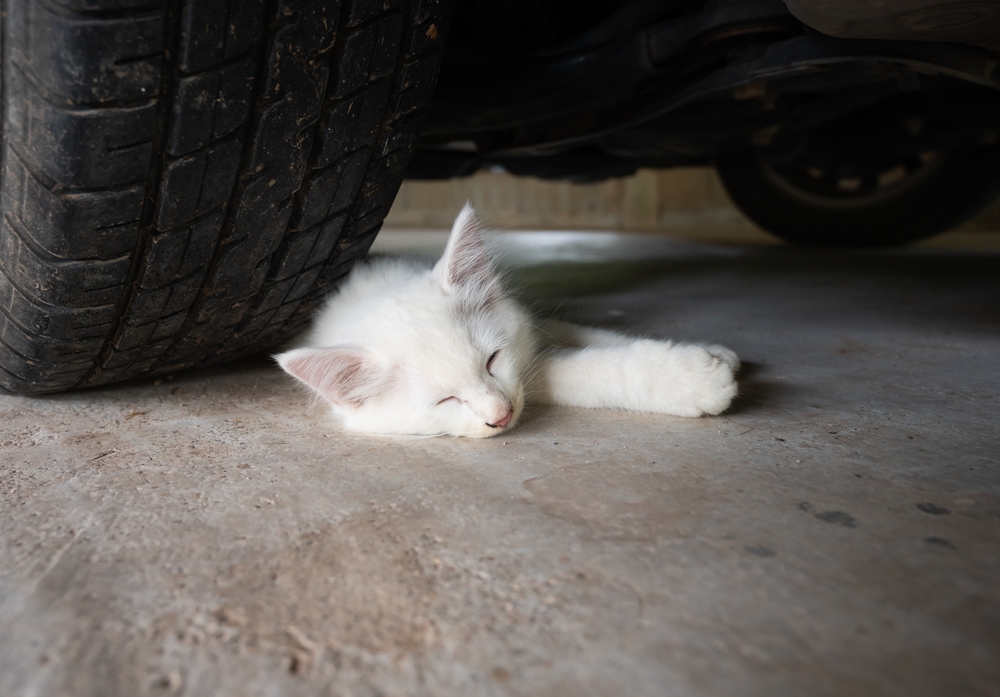
If your pet has access to your garage, tips to keep them safe include:
- Store chemicals on high shelves or behind latched doors.
- Quickly clean up spills, such as antifreeze, to prevent toxin ingestion.
- Bang on your hood or blow your horn before starting your car to ensure your cat or a stray animal isn’t in your engine compartment or tire well.
Pet proofing your home helps keep your pet safe from toxicity, injuries, and foreign body ingestion. If your pet encounters a home hazard, contact our Veterinary Medical Center of Indian River County team as soon as possible, so we can remedy the problem and provide a better prognosis.


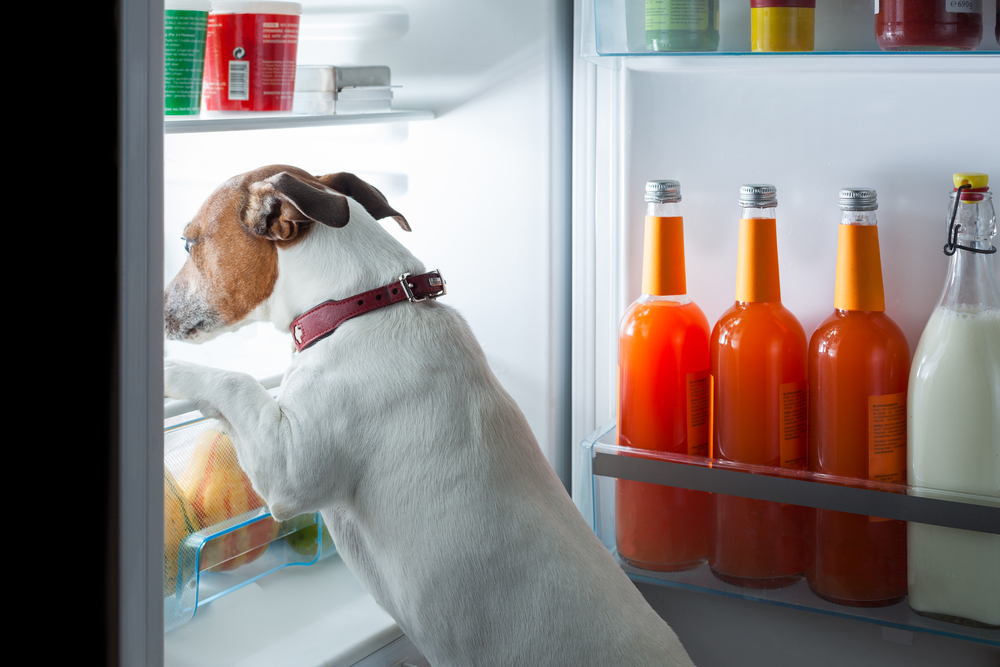
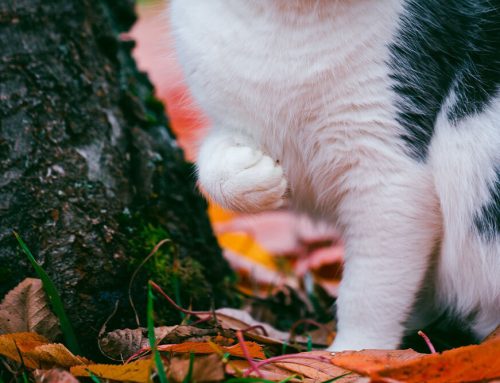
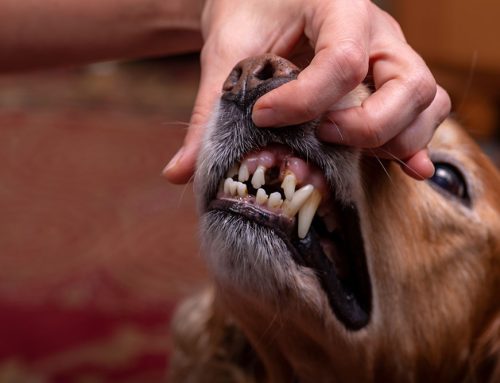
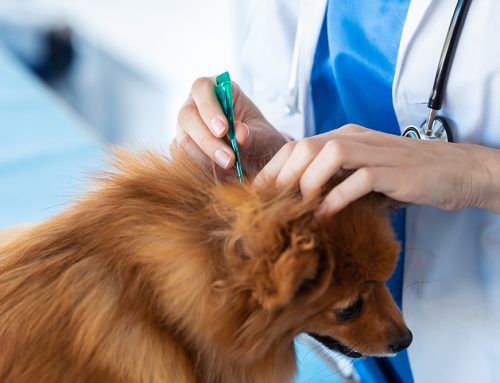

Leave A Comment